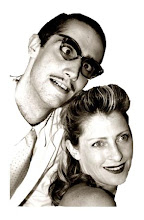10 miles into Mississippi and already its another planet with, as our motel clerk has keenly pointed out, smaller roads. Sue’s technique for fathoming the amount of grease used in a restaurant by checking the hand prints on the inside of their front door forewarns us that we are about to get the heaviest breakfast yet. Lardy faces stick to us and won’t budge their stares till we leave, a gallon of grease heavier between us.
Inside a Thrift Store with a sign on the front door proclaiming “No Profanity” and free coffee inside we find an album by the late great Phil Harris otherwise known as Balloo the Bear. Harris, who was born in Louisiana, knew the languid and breathless landscape of the South and as we drive from one bankrupt town thru the next his spirited ‘That’s What I Love About The South’ turns 84 times on our record player.
Shadowing a two-mile train thru the voluptuous low lands of Mississippi we find ourselves in Hattisburg, a small town with a large number of fire stations and even larger number of fire ravaged houses. A black man in a Vietnamese straw hat stands under the shelter of a street sign, his bull dog collapsed on the pavement with its huge tongue rolled out as if to welcome visiting dignitaries. “Sure’s hot” is all he can manage and the gesture feels generous. Being Sunday the only people out besides him in town are bikers who are about as welcoming as a mouthful of sawdust. Even the water of the motel pool can’t break the sweat, but this doesn’t stop myself and Sue from spending the afternoon stood like stupid livestock with a Mexican family in liquid as warm as devils piss.
Early the next morning we are banging at the door of a woman called Cheetah who obliges our addiction with a fix of crate after crate of dusty, dog eared records, three quarters of which are by religious groups. Two of them have covers painted by the enigma who is known only by their first or last name of Harvey. This artist painted over a hundred album covers for the Savoy label who posted checks to a PO Box and Harvey, in return, posted them the paintings. That is as far as any investigation into who painted these vivid and naive pieces goes and at our next thrift store we discover why.


Rudy Boutwell has been collecting for over 50 years. The glass of his front door is so consumed by cuttings from papers and hanging fetishes his thin blue eyes can hardly find us as he peers out. Inside looks like he has spent 50 years not collecting but rather excavating, burrowing minute passageways thru a deluge of toys, golf clubs, velvet paintings and shot glasses like a prisoner digging for freedom. After 10 minutes of squeezing my slender frame thru this warren it suddenly becomes startlingly apparent that Rudy doesn’t live in a small house but in a considerable warehouse. You would have to be crazy to try and make sense of it. But Rudy, all 83 years of him, knows exactly where everything is and as we dive into his record collection converses with us about the second coming, plays songs on his harmonica and suggests, not meekly, that dropping an atom bomb on Iraq would “Quiet them down”. Despite what we would like to hold against Rudy for this it is hard not to like him. Like Harvey he is a man of absolute passion and conviction. And like Harvey, Rudy’s is just another door in the vast American landscape thru which people rarely pass.
Not wanting to buck a perfectly fun trend we shadow a train out of Hattisburg and, loosing it as the trees once again take on the impenetrable dark green of Florida, we open up a scratched and nearly lost piece of vinyl from Rudy’s labyrinth. It is by Robert Parker a man from New Orleans, who pressed a few records and then became a bus driver. As we place the needle on the record and enter Louisiana we are reminded that while the buses still run Robert is only to be remembered today in the wonderful life that he left in his songs.










